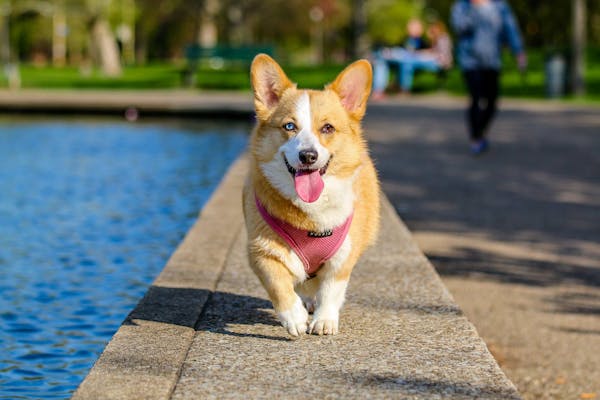 |
| How to Keep Your Dog Healthy and Happy |
Comprehensive Guide to Keeping Your Dog Healthy and Happy
At We Love Pets, we understand the importance of ensuring your furry friend's well-being. As devoted pet owners ourselves, we know that a healthy and happy dog brings immense joy and companionship to our lives. In this comprehensive guide, we'll delve into various aspects of dog care, providing you with actionable tips and expert advice to keep your canine companion in optimal health and high spirits. Understanding Your Dog's NeedsProper NutritionNutrition plays a crucial role in maintaining your dog's health. We recommend feeding your dog a balanced diet consisting of high-quality dog food that meets their specific nutritional requirements. Consult with your veterinarian to determine the right diet plan based on factors such as age, breed, size, and activity level. Ensure access to fresh water at all times, and avoid feeding your dog table scraps or foods that may be harmful to them. Regular ExerciseJust like humans, dogs need regular exercise to stay healthy and happy. We encourage incorporating daily walks, play sessions, and interactive activities into your dog's routine to keep them physically and mentally stimulated. Engaging in activities such as fetch, agility training, or hiking not only provides exercise but also strengthens the bond between you and your furry friend. Veterinary CareRegular veterinary check-ups are essential for monitoring your dog's overall health and detecting any potential issues early on. We recommend scheduling annual wellness exams, vaccinations, and preventive treatments for parasites such as fleas and ticks. Additionally, be proactive in addressing any signs of illness or discomfort, and always follow your veterinarian's recommendations for vaccinations, deworming, and dental care. Creating a Safe and Enriching EnvironmentProvide Mental StimulationIn addition to physical exercise, mental stimulation is vital for keeping your dog's mind sharp and preventing boredom. We suggest incorporating puzzle toys, interactive feeders, and training sessions into your dog's daily routine to challenge their cognitive abilities and provide enrichment. Rotate toys regularly to keep things interesting and offer a variety of activities to keep your dog engaged. Establish Routine and ConsistencyDogs thrive on routine and consistency, so we recommend establishing a daily schedule for feeding, exercise, training, and rest. Consistent routines help reduce anxiety, promote good behavior, and create a sense of security for your dog. Stick to a regular feeding schedule, designate specific potty times, and provide a comfortable sleeping area where your dog can rest undisturbed. Ensure a Safe EnvironmentCreate a safe and secure environment for your dog both indoors and outdoors. We advise securing fences and gates to prevent escapes and minimize the risk of accidents or injuries. Remove any potential hazards such as toxic plants, chemicals, small objects, or electrical cords that your dog could ingest or chew on. Supervise outdoor activities and never leave your dog unattended in extreme weather conditions. Nurturing Your Dog's Emotional Well-BeingBonding and SocializationBuilding a strong bond with your dog is essential for their emotional well-being. We encourage spending quality time together through activities such as grooming, cuddling, and training. Socialization is also crucial for helping your dog develop positive relationships with people and other animals. Expose your dog to various environments, experiences, and stimuli from an early age to promote confidence and sociability. Positive Reinforcement TrainingPositive reinforcement training is a highly effective and humane way to teach your dog desired behaviors and manners. We advocate for using rewards such as treats, praise, and play to reinforce good behavior and discourage undesirable habits. Focus on consistency, patience, and clear communication to help your dog learn and thrive. Recognizing and Addressing StressDogs can experience stress and anxiety due to various factors such as changes in routine, loud noises, or unfamiliar situations. We advise learning to recognize signs of stress in your dog, such as panting, pacing, trembling, or excessive barking. Provide reassurance, create a calm environment, and consider using techniques such as desensitization and counterconditioning to help your dog cope with stressors. |
